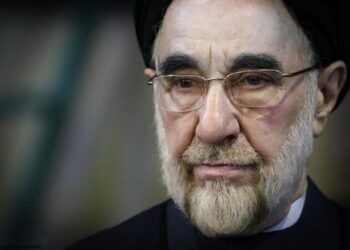The ambassador had been withdrawn in anger when Senegal learned that 13 containers of Iranian-made arms, found in Nigeria earlier last year, were due to be shipped on to Gambia, a tiny nation almost completely surrounded by Senegal. The Senegalese assumed the weapons must be destined for a band of rebels in the Senegalese province of Casamance, which abuts Gambia. Papa Dieng, an adviser to Senegal’s president, declared a link between the arms and the Casamance rebels publicly for the first time in an interview January 11.
What Salehi told the Senegalese about the Iranian weapons shipment is not being discussed publicly by anyone.
But the Islamic Republic News Agency said Iran told Senegal it would provide up to $200 million to support joint economic development projects in Senegal.
To some, that sounded suspiciously like a bribe.
Meanwhile, over in Nigeria, an eight-member UN delegation arrived to inspect the Iranian weapons and talk with Nigerian officials about that they know of shipment’s background.
Azim Aghajany, the Iranian arrested by Nigeria for handling the arms shipment and trying to re-ship the 13 containers to Gambia, is due to go on trial next week. Nigerian officials say Aghajany is an officer in the Qods Force, the foreign operations branch of the Pasdaran.
Arrested with Aghajany was Ali-Akbar Tabatabai, who has been described as the chief of Pasdar operations in Africa. But he was reported to hold diplomatic immunity in Nigeria and was allowed to quietly leave the country back in October.
United Press International reported last week that Tabatabai has now been reassigned to Venezuela to head up Pasdar intelligence operations in Latin America.
Whether the arms were really bound for the Casamance rebels is an open question. No one has come up with an explanation for why Iran should wish to support the rebels when it has enjoyed very good relations with Senegal.
Furthermore, just after it was revealed that the arms were to be shipped onward to Gambia, the US State Department sanctioned two firms in Banjul, Gambia’s capital, whose owners are linked to the Lebanese Hezbollah. But it has never been publicly revealed to what address the arms were being shipped. It is possible the entire operation was a roundabout route to move weapons to Iran’s allies in the Arab world.
The arms in the 13 containers included 107mm rockets, 60mm, 80mm and 120mm mortars, ammunition for 23mm anti-aircraft guns and small arms ammunition.
Gambia earlier severed all relations—political, diplomatic and commercial—with Iran. It does not appear that Iran is trying to re-establish relations with Gambia, which is Africa’s smallest country.














